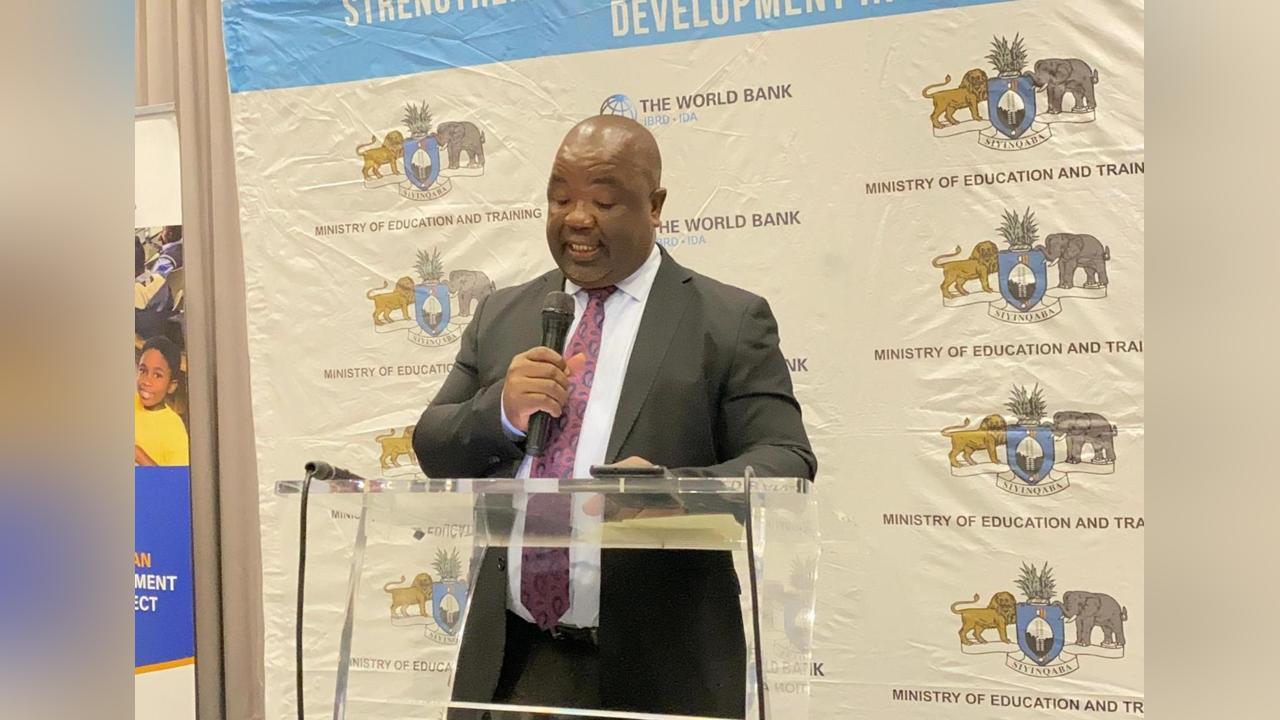Africa-Press – Eswatini. The Ministry of Education and Training has called on the media to take an active role in promoting public understanding of Eswatini’s E560.15 million World Bank funded education project, aimed at strengthening human capital by improving learning from early childhood to lower secondary level.
During a Media Sensitisation Workshop at Hilton Garden Inn on Friday, October 24, 2025, Minister of Education and Training, Owen Nxumalo, described the gathering as a crucial platform to ensure journalists are fully informed about the project’s objectives and impact.
“This is a vital breakfast meeting to strengthen advocacy for this critical project by equipping the media with accurate facts and a clear understanding of this World Bank funded initiative,” Nxumalo said. “The media is the essential bridge between policy and the public, and your role in communicating the essence of this initiative is invaluable.”
The E560.15 million project, funded through a World Bank loan of E477.4 million and a grant from the Global Partnership for Education (GPE) of E82.75 million, focuses on three key areas: Early Childhood Care, Development and Education (ECCDE), early grade literacy and numeracy, and Mathematics and Science at the lower secondary level.
At the ECCDE level, 340 Grade Zero classrooms will be provided with indoor and outdoor learning materials, curriculum resources, teacher guides, assessment tools, and storybooks. For the primary phase, 243 schools will receive teaching and learning materials to strengthen literacy and numeracy in Grades 1–3.
Lower secondary schools are also a priority: 126 schools will receive targeted support to improve Mathematics and Science instruction, including the use of ICT tools to make learning more engaging and accessible.
Addressing learner retention is a key part of the project. The Orphaned and Vulnerable Children (OVC) Education Grant will be strengthened in 16 junior secondary schools, while 63 schools will establish vibrant learner clubs to reduce dropouts and keep students in school.
Nxumalo stressed the wider significance of these interventions: “Every learner who drops out represents a loss of potential for their family, their community, and the nation. When a learner completes secondary education, it dramatically increases their life chances and their contribution to our national GDP.”
He expressed sincere gratitude to the World Bank and GPE for their financial and technical support, calling the project “a national investment in our future prosperity.”
The Minister concluded by urging journalists to use their platforms to advocate for and highlight the project, ensuring that its objectives are clearly understood and its long-term benefits widely appreciated. “This initiative is not merely an education reform; it is a national investment in Eswatini’s collective future and the media is key to ensuring its impact is deeply felt and sustained,” Nxumalo said.
For More News And Analysis About Eswatini Follow Africa-Press







